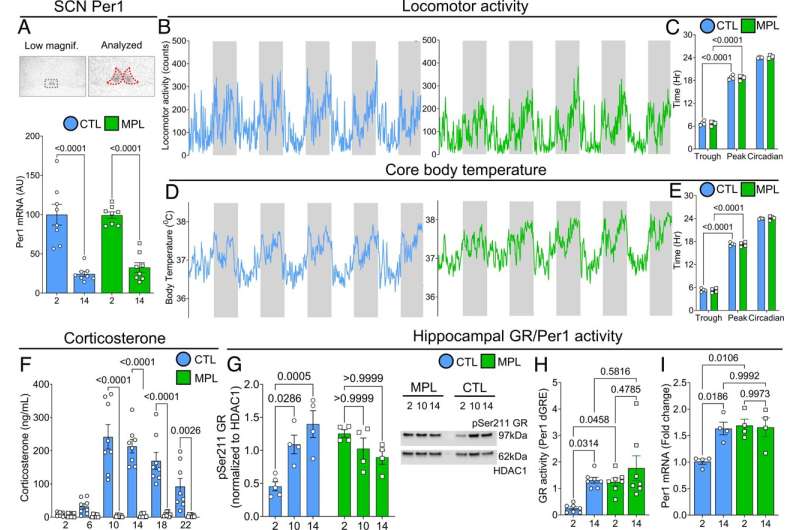This article has been reviewed according to Science X's editorial process and policies. Editors have highlighted the following attributes while ensuring the content's credibility:
fact-checked
peer-reviewed publication
trusted source
proofread
Long-term use of steroids could impair memory, study finds

Memory impairment associated with steroid use has been identified in a new study. The University of Bristol-led findings, published in PNAS, show great potential for the identification of drugs that could be adapted to treat certain memory disorders.
Glucocorticoids, commonly known as steroids, are the most commonly prescribed anti-inflammatory drug used to treat a range of conditions including allergies, asthma, arthritis and inflammatory bowel disease. However, they often have an adverse effect on mood, sleep and memory and many patients prescribed steroids report cognitive decline and memory impairment.
A multidisciplinary research team at the University of Bristol, led by Dr. Becky Conway-Campbell, wanted to examine the impact of steroid treatment on memory processes to find out if the reported adverse effects were a result of the steroid or the underlying medical condition.
Using a rodent model, the team found that even a relatively short course of prescribed steroids—methylprednisolone for five days—led to impaired memory performance when carrying out a memory and learning-related task.
An analysis of the rodent model brains indicated that the brain region important for memory and learning—the hippocampus—was significantly altered by the treatment. The functional activity of the hippocampus, measured by electrophysiological recordings, was profoundly impaired in the rodent model treated with methylprednisolone, providing the first evidence of a root cause for the memory deficit.
Dr. Matthew Birnie, Fellow at the University of California and first author, who carried out the gene expression aspect of the work during his Ph.D. at the University of Bristol, said, "People who are prescribed steroids often report memory deficits. However, it's been difficult to disentangle if this is the result of the underlying medical cause, or if it's an adverse effect of the treatment itself.
"Our findings provide breakthrough insights into the impact steroid treatment has on memory processes in the absence of underlying medical conditions. Importantly, these findings identify the critical importance of matching a prescribed course of medical treatment to endogenous steroid release."
Stafford Lightman, Professor of Medicine at the Laboratories for Integrative Neuroscience and Endocrinology (LINE) at the University of Bristol, explained: "We have shown how important it is to record the times in which you do any experiments. In our model of memory that looks at synaptic plasticity —the way neurons talk to each other—we have shown that the phenomenon of synaptic potentiation in the hippocampus is only seen during the active time of day and not during sleep.
"Additionally we have shown that long-term treatment of steroids can block its effectiveness at all times of day and could contribute to the brain fog experienced by many people on steroids."
Dr. Conway-Campbell Research Fellow in Bristol Medical School's Translational Health Sciences group, added, "The strength of the study is due the excellent multidisciplinary team here at Bristol Medical School and Department of Physiology, Pharmacology and Neuroscience; notably including the rising star young scientist and co-first author of the paper, Dr. Matthew Claydon, who performed the electrophysiological experiments in Dr. Zuner Bortolotto's lab, as well as the excellent work of Dr. Gareth Barker and Dr. Rebecca Demski-Allen who performed the behavioral studies in Professor Clea Warburton's group."
She concluded, "Our study's findings may finally help to explain the molecular basis for memory deficits associated with steroid treatment and chronic stress conditions, as well as lead to the identification of drug treatments that could be adapted to treat these types of memory disorders."
More information: Matthew T. Birnie et al, Circadian regulation of hippocampal function is disrupted with corticosteroid treatment, Proceedings of the National Academy of Sciences (2023). DOI: 10.1073/pnas.2211996120

















